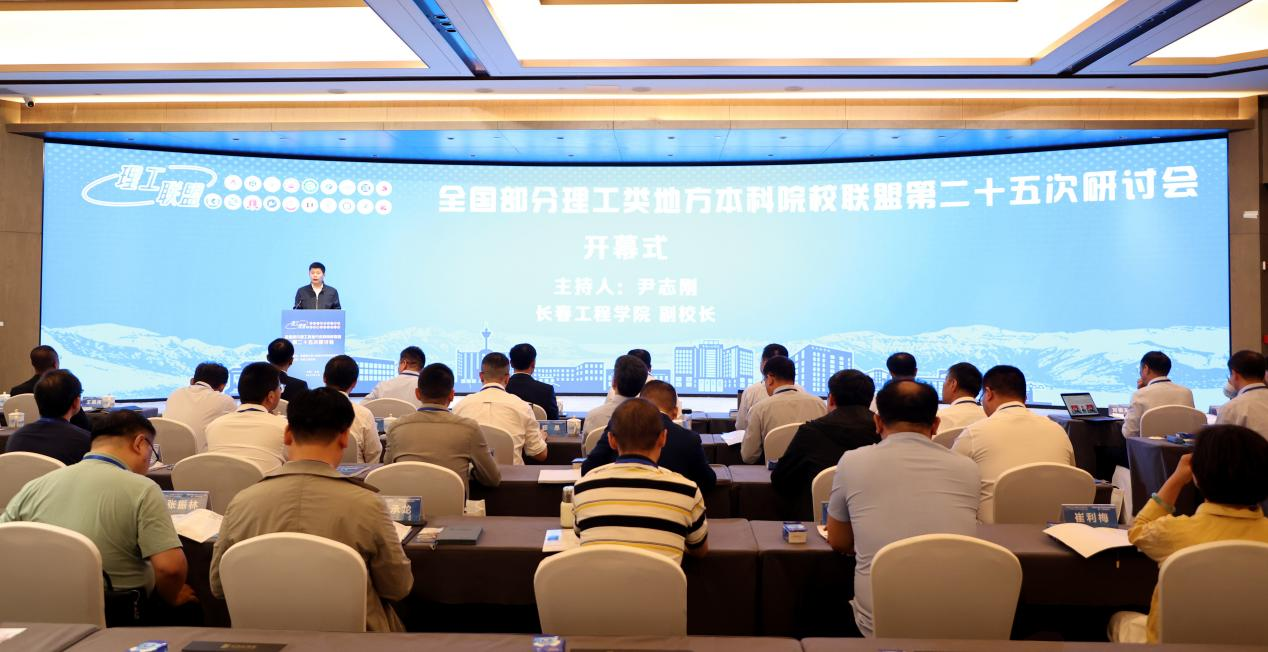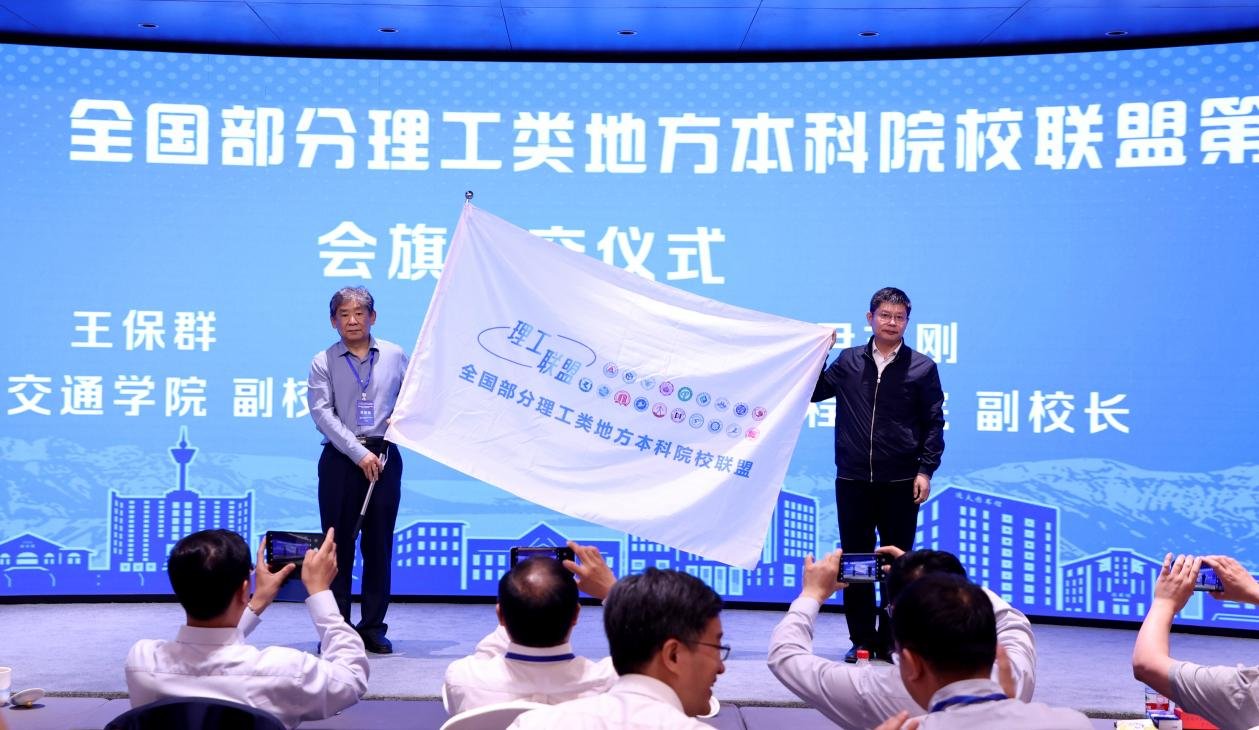From May 28 to 30, the 25th Seminar of the National Alliance of Local Science and Engineering Undergraduate Colleges and Universities, organized by the Alliance and hosted by CIT, was successfully held in Changchun.

With the theme of "New Missions of Application-Oriented Universities and the '15th Five-Year' Development Strategy" , the seminar aims to boost application-oriented colleges and universities to shoulder the new mission of building a strong education country in the new era, plan a new blueprint for high-quality development during the “15th Five-Year Plan” period, and transform the national strategy for a strong education country into concrete actions of universities.
Vice President Yin Zhigang presided over the opening ceremony of the seminar. Wang Peijun, Party Secretary of Suzhou University of Technology, the alliance's chair unit, delivered a speech. He emphasized that under the background of the education power strategy, the “15th Five-Year Plan” period is crucial for the high-quality development of alliance universities, and therefore this meeting is timely and significant. He put forward three expectations. First, he hopes that alliance universities will fully engage in extensive exchanges to gain new insights and momentum for high-quality development. Second, he expects alliance universities to carry out all-around cooperation, achieve win-win results, and produce high-level outcomes. Third, he looks forward to the optimization and sharing of educational resources within the alliance through talent exchange and collaborative innovation in building a development community.
On behalf of CIT, Secretary of the Party Committee Song Lijun extended a warm welcome to the representatives. He noted that enabling application-oriented undergraduate universities to “become stronger’’ in the context of the rapid development of artificial intelligence has become an important topic contemporarily. It is also a new requirement under the background of advancing the modernization of industrial systems and accelerating the development of new-quality productive forces. We should, through the “Alliance's strength” and the “Seminar's wisdom” more accurately respond to the “development questions” and “people's expectations” better grasp the new mission of application-oriented universities in the new era, lay a solid theoretical foundation for alliance universities to answer the new high-quality development questions during the “15th Five-Year Plan” period, and effectively serve the accelerated construction of a strong education country.
At the meeting, 18 alliance universities focused on the theme and shared their successful experience and in-depth thoughts, with additional 16 papers submitted as written exchange materials to form the conference proceedings.
The Symposium closed on the 30th. Vice President Han Wei presided over the closing ceremony, and Zhang Genhua, Vice President of Suzhou University of Technology, delivered a summary speech. He stated that the development paths of alliance universities during the “15th Five-Year Plan” period show common characteristics of the “ Four adherences”. First, adhering to the application-oriented education, taking root in local areas, and cultivating new momentum for characteristic development. Second, adhering to the orientation of cultivating new-quality talents and promoting the renewal of educational paradigms and talent-cultivation models. Third, adhering to the integration of discipline construction and industry, and building a new “industry + discipline” linkage ecosystem. Fourth, adhering to comprehensive reform and mechanism innovation to explore the breakthrough logic and future vision of development. It is expected that all alliance universities will take this meeting as an opportunity to deepen interaction and docking and promote collaborative development.

Later, Vice President Yin Zhigang handed over the seminar flag to Shandong Jiaotong University, the host of the next seminar.
The seminar was attended by over 60 experts and scholars from 18 alliance universities, including Suzhou University of Technology, Shanghai Dianji University, and Chongqing University of Science and Technology.
First Review by Zhan Xia
Second Review by Zhang Jian
Final Approval by Su Xiaoping


